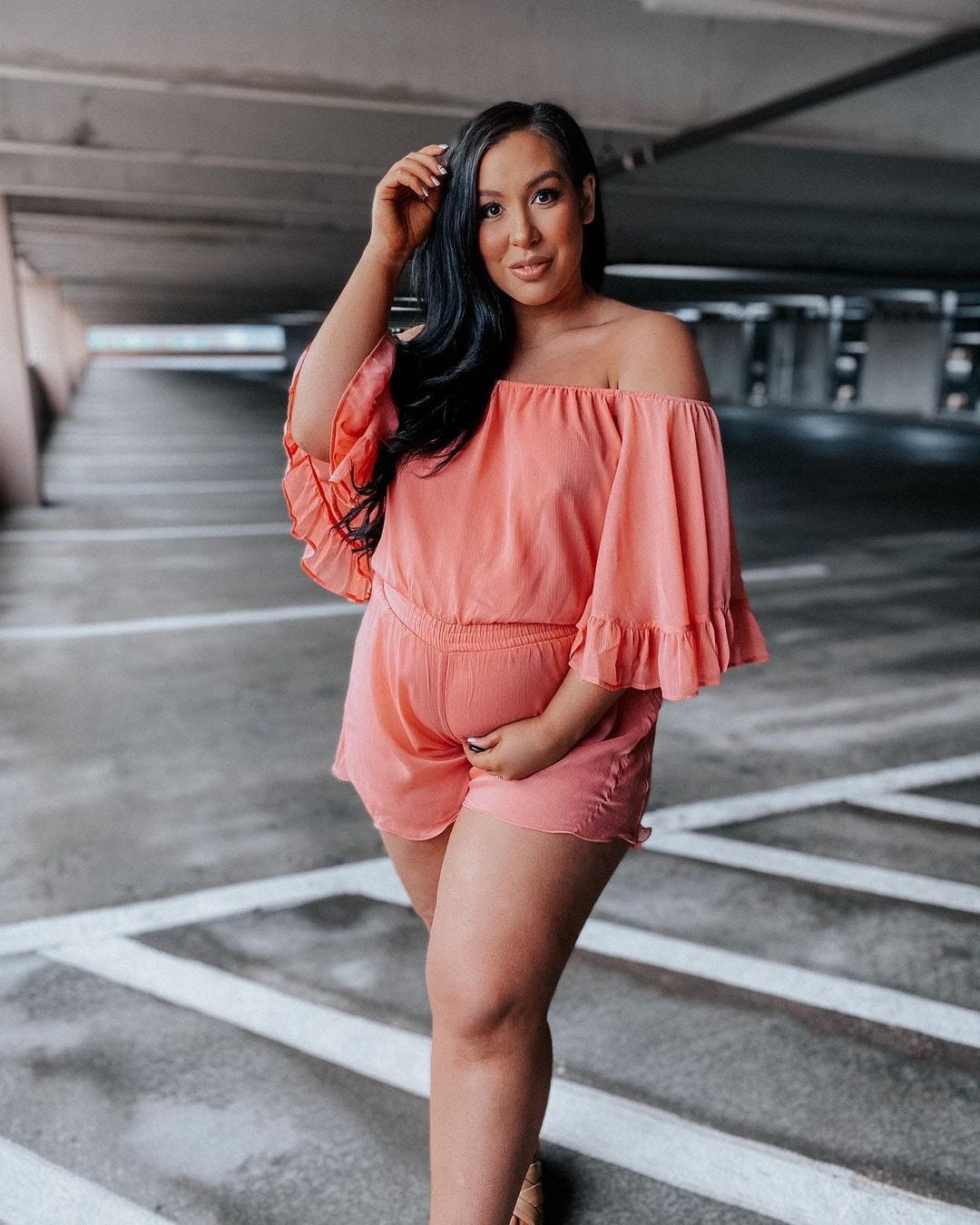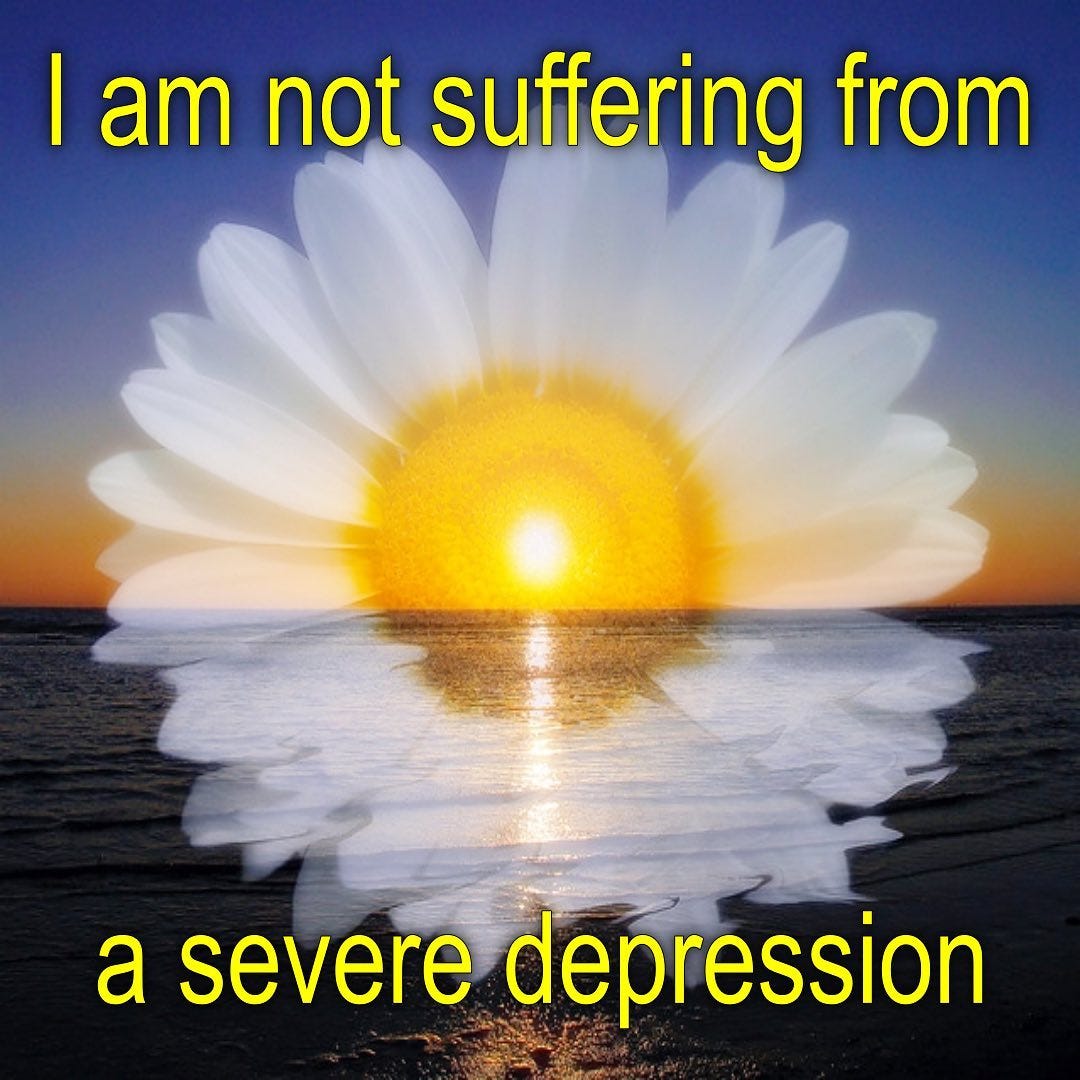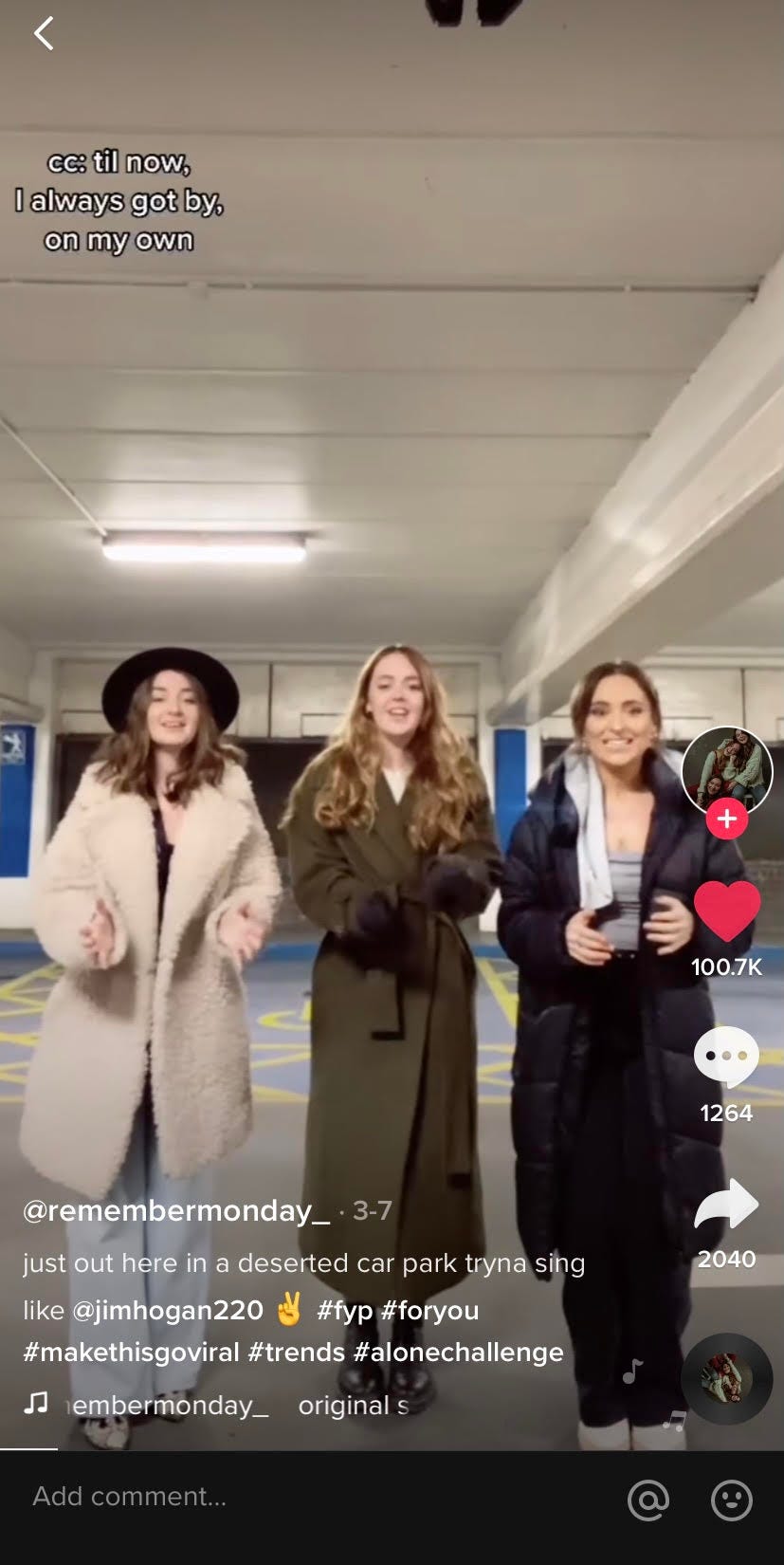'I am big boss': The death of the Instagram aesthetic
And what parking garages may have to do with it.
The (High) Rise of the Instagram Parking Garage
It shouldn’t be surprising that in an era of messy Instagram dumps, the backdrop du jour is an industrial, flavorless structure.

Instagram bait is easy to spot. There are whole art installations and popups built on the premise that people will show up just to take pictures of themselves with it. There are selfie stations at vaccine clinics! In some ways, we now live in a world built for our use of social media, not the other way around. But that doesn’t change a universal truth: As soon as the world catches up with social media, social media will have moved on.
Today’s newsletter focuses on the ways Instagram is changing as a platform—culturally, at least. But what I want to talk about here is something much more specific: Parking garages. Now that I’ve put them in your head, you’re going to start seeing them all over your Instagram feed. Roof lots, enclosed lots, lots in front of malls. The concrete, grayscale background sits in sharp contrast with the glamorous influencer posing in front of it, and is a far cry from the murals and pink walls of Instagram’s past.
It shouldn’t be surprising that in an era of Instagram dumps and purposeful lack of aesthetic curation, the backdrop du jour is an industrial, flavorless structure not meant for taking pictures at all. But this isn’t some trend being ushered in by Gen Z. Parking lots are both urban and suburban, and safe ground for an entire population that wants to maintain a dynamic social media presence but still can’t stray too far from their houses. It’s not an exaggeration to say people of every age are posing in them.
I was first alerted to the rise of the parking garage after scrolling the feeds of mainstream influencers like Bre Sheppard and Bonnie Wyrick. Wyrick, in particular, began using a parking garage as a frequent photoshoot location almost as soon as the pandemic hit, and has posted five photos from one in the past month alone. No sooner had the pair given me the idea to take a closer look at the parking garage phenomenon did this TikTok video appeared on my For You Page.
Acoustically, this location makes sense. The women’s harmonies reverberate and echo off the concrete floors and walls of the parking garage in a way that further enhances the music. This video remains their most successful—and their second most popular is the only other one they filmed in a parking garage.
I found these examples when I wasn’t even looking for them. The #parkinggarage hashtag on Instagram has over 175,000 posts, with some people admitting in their captions they went in pursuit of a parking garage to participate in the trend—which, of course, Gen Z has been a huge part of.
And now you, like me, have been infected with the parking garage bug. Resist as I might, I know the next time I’m walking through one I’ll have the urge to ask my friend to maybe just snap a few pics. But I’ve seen Seinfeld. I know how hanging out in a parking garage too long can end. —Kate Lindsay
Q&A: Matthew of @Afffirmations
“I enjoy seeing how pictures of inherent bad quality, after some editing, actually can turn out to be quite beautiful.”

The age of Instagram as art gallery is over. The app feels less and less like a place to curate your “best life” and more like a platform for spilling tea, swapping memes, and encouraging political action or dumping your camera roll in carousels. As a result, some creators are rethinking success on the platform: Is it about earnestly modeling an aesthetic, or enticing shares with tossed-off whimsy and sly irony? For @afffirmations, it's clearly the latter.
Matthew, the 20-year-old Norwegian behind the fast-growing Instagram account officially titled “Global Self Hypnosis,” has accumulated 155,000 followers for his art—or whatever word you’d use to describe his amusing cacophony of stock imagery and awkward slogans that an AI might spit out if asked to create inspirational waiting-room posters about wellness, self-care, and capitalism.
A typical post superimposes a daisy and the text “I am not suffering from a severe depression” over an image of an ocean.
The obvious question—Is this satire?—is, of course, one that Matthew (who prefers to only share his first name) would rather not answer. “I enjoy seeing how pictures of inherent bad quality, after some editing, actually can turn out to be quite beautiful,” he tells me over email, admitting only that “the aesthetic [plays] on the early days of the internet.”
The depression post would seem to be everything that Instagram abhors—crude, inscrutable, influencer-free—and it has over 31,000 likes. Of course, it's no longer 2018, and the flat-lays and Monstera plants of that era have since been replaced by, among other things, dumps of Miley Cyrus and SZA's candids and favorite memes.
“My opinion is that, if I wouldn’t have started making these pictures, I believe someone else would’ve done so,” Matthew writers in his charmingly formal English. “This style of pictures was inevitable to appear.”
This new aesthetic, such as it is, has grown in tandem with the emergence of Instagram as a place to share content as much create your own.
“I guess I didn't appreciate how often people share memes,” Sasha, the 24-year-old creator behind the original meme account Starter Packs Of NYC, recently told me. “So very quickly people I didn't know started following [my account] and sharing. And now if I look at any given starter pack, tons and tons and tons of people are just DM-ing it to their friends.”
And indeed, Matthew describes “Instagram-friendly” content as content that’s not beautiful, but sharable.
“The pictures are made for Instagram [users], they are meant to be shared and spread around,” he says. “People can do whatever they want to them, edit, repost, print out; I don’t care.”
One thing that hasn’t changed: the potential for monetization. Matthew has already released a line of merch.
“I simply enrich the world with my online presence...and it feels great,” one poster, on sale for $20, reads.
“I am big boss,” a $25 t-shirt proudly declares.
But true to the zen demeanor Matthew projects in his art, he’s not actively pursuing sponsored posts or any longform project on the heels of the account’s success.
“I trust that what comes, comes for the best,” he says.
Sounds like the next @afffirmations post. —KL
Drama Personae
Danielle Bernstein reached out to a Black-owned fashion label during the Black Lives Matter protests last summer. Then she allegedly ripped off their dress design.
Spearmint Love, a baby clothing and accessories brand, Instagram Storied a video of a stripper at a party and is just ... posting through it?
Did Saturday Night Live steal a joke from scientist-educator-rapper Raven Baxter? So she writes in a comment on this post to her 28,700 followers.
The Fine Print
Thanks to Matthew of @afffirmations and Sasha of Starter Packs of NYC. Read Nick’s review of the debut album from 24KGoldn, the tween idol who broke through last year on TikTok. See our posts on Twitter and Instagram. And finally, resolve to enrich the world with your online presence.








